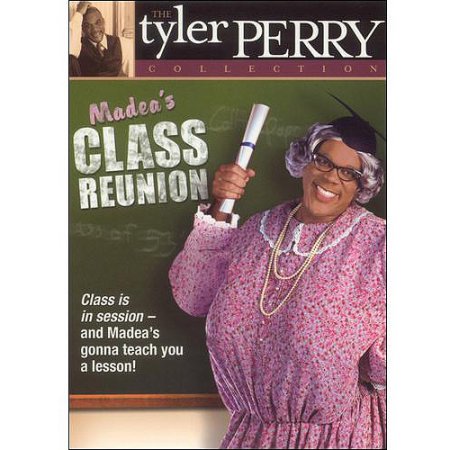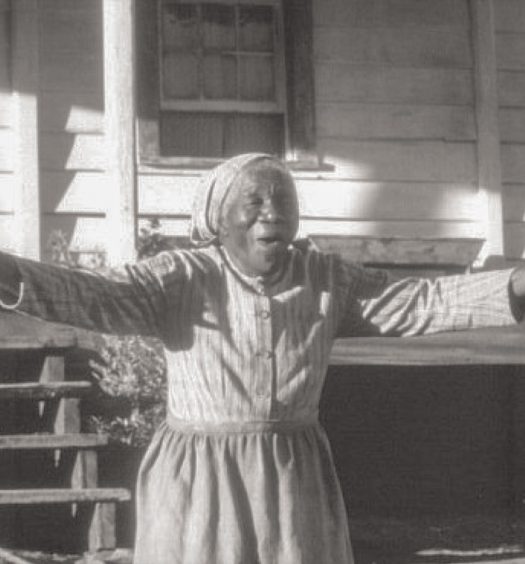“You my lucky piece,” Grandma says.
Grandma has walked me the half block from the hospital lobby to the bus stop. Her hand is wrapped around mine like a leash.
It is fall 1982 in Portland and it is raining. Puddle water has splashed up on my new shoes. My girl-in-a-new-dress feeling has faded. My new-girl feeling has disappeared.
My hand is in Grandma’s until she reaches into a black patent leather clutch for change.
“Well, aren’t those the prettiest blue eyes on the prettiest little girl,” the bus driver says as we climb aboard. The new-girl feeling comes back and I smile.
“This my grandbaby. Come to live with me.” Grandma can’t lose Texas.
“Thank you, ma’am,” I say. I mind my manners around stranger. Grandma is still a stranger to me.
I know only a few things about Grandma. She’s a gardener. She has soft hands, and she smells like lavender.
For Christmas, Grandma always sent Robbie and me a card with a new ten-dollar bill wrapped in aluminum foil. On the back of the envelope where she pressed extra hard there’d be a small smudge. The card smelled like the lavender lotion she uses to keep her hands soft.
Grandma doesn’t have a single wrinkle on her anywhere. She has eggplant brown skin as smooth as a plate all because of the lotion she sends for special from the South. “They got better roots down there– better dirt for making a root strong.” Her body is a bullet. She is thick and short. Her dark hair is pulled back and is covered by a plastic bonnet.
“Well, aren’t you lucky to have a special grandma,” the bus driver says. “Pretty and lucky.”
This is the picture I want to remember: Grandma looks something like pride. Like a whistle about to blow.
Grandma puts the change in for my fare. She wipes the rain off my face. “We almost home.”
When we find out seats, she says something more, but I cannot hear it. She is leaning across me like a seat belt and speaks into my bad ear–it is the only lasting injury from the accident. Her hand are on me the whole ride, across my shoulder, on my hand, stroking my hair to smooth it flat again. Grandma seems to be holding me down, as if I might fly away or fall.
The bus ride is seven stops and three lights. Then we are home. Grandma’s home, the new girl’s home in a new dress.
Grandma was the first colored woman to buy a house in this part of Portland. That’s what Grandma says. When she moved in, the German dairy store closed, and the Lutheran church became African Methodist. Amen. That part’s Grandma too. All of Grandma’s neighbors are black now. And most came from the South around the same time Grandma did.
This is the same house Pop and Aunt Loretta grew up in. On the dining room mantel are photographs of me and Pop. Of me and Grandma. Of me and Robbie. Of me, but none of Mor, that’s mom in Danish.
“There, see that smile? That was the time I came to visit you over Christmas. Remember? Playing bingo. Oh! And I have a little present for you.”
When she comes back, she holds a large wrapped box. I open the box, Make my first deals with myself. I will not be sad. I will be okay. Those promises become my layers. The middle that no one will touch.
“Thank you,” I say and pull out two black Raggedy Ann and Raggedy Andy dolls.
“Aunt Loretta gave you her room. Dressed it all up in pink. Did you know that’s her favorite color?”
I nod.
“And look at your hair. All this pretty long hair looking all wild from outside.”
“We’re gonna wash that tonight,” she continues. “Your Aunt Loretta will help you. Bet she know how to do something better with that mess of hair than what you had done before. You’re gonna go to school on Monday and be the prettiest girl there.”
She doesn’t say better than your mama. She doesn’t say anything about my mother, because we both know that the new girl has no mother. The new girl can’t be new and still remember. I am not the new girl. But I will pretend.
The two rag dolls that Grandma gave me sleep at the bottom of the bed. Grandma and Aunt Loretta want to check on the poor baby. That’s me.
I close my eyes and pretend sleep. I pretend sleep all the time now. “Poor baby, so tired.” Grandma pats my hair.
It’s the kind of hair that gets nappy. Grandma tried to brush it out before bedtime. I held real still, but it still hurt. She said I was tender-headed. The comb got stuck in the bottom in the back. Grandma said the tangled part is what’s called my kitchen.
“She’s got good hair. Leave her be.” Aunt Loretta pulled the comb out, untangled each hair. “It’s the same place where my kitchen is,” Aunt Loretta said. “Where I get the naps in my hair too.”
“Black girls with a lot of hair don’t need to be so tender-headed,” Grandma said. My middle layers collapsed. And I cried. And cried and cried.
Now my nappy kitchen head is on the pillow. All wild, like Grandma says. And I’m done crying. I don’t want to be a mess or nappy or be so tender. “I’ll wash it tomorrow, Mama,” Aunt Loretta says. Her voice is honey.
I want to be as beautiful as Aunt Loretta. She smiles all the time even when she looks at the picture of Uncle Nathan. Her teeth are white like paper and straight. She shows her teeth when she smiles. I have a cover-up-my-teeth smile. Maybe I started doing it when Pop called me Snaggletooth.
Aunt Loretta is nut brown and knows she’s beautiful. She was Rose Festival princess and got to meet President John F. Kennedy. Her skin is even prettier than Grandma’s and she doesn’t use that sent-for lotion.
Grandma and Aunt Loretta leave the door open enough to let light in. But still I press my back into the bed and open my eyes. No more pretend sleep. Now I will be real awake. Make sure the dreams don’t come. Stay awake. Stay away from dreaming.
Tomorrow is my first day at a new school. I have a new notebook and pencils and a pencil holder with a zipper. I am going to think about school and practice the best cursive and learn all the big words I can know. I am going to concentrate. Be a good girl.
(Pages 3-7)
~ Heidi Durrow




